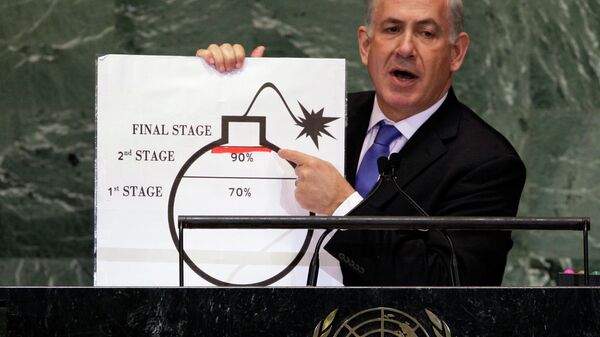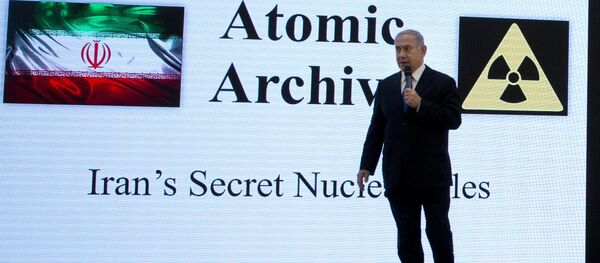Israeli intelligence believes that Tehran is making progress in its nuclear programme, and can potentially make its first atomic weapons soon if it decides to, the Israeli Kan 11 broadcaster reported citing anonymous sources.
"Iran can achieve a nuclear bomb within less than a year if they decide to act quickly in that direction", the broadcaster cited the intelligence agency's warning.
The broadcaster's sources further noted that the Israeli authorities are transferring "materials" that allegedly prove their claims to the International Atomic Energy Agency (IAEA), but said that the process is taking too long due to bureaucracy.
Perpetual Accusations
Israel has repeatedly accused Iran of trying to build nuclear weapons and reportedly engaged in organised sabotage targeting its nuclear sites, including the notorious Stuxnet computer worm attack, which damaged at least several enrichment centrifuges. Israeli Prime Minister Benjamin Netanyahu made the most vocal claims during his speeches at the UN in 2012 and 2018, when he accused Iran of running a secret programme to build nukes.
Iran vehemently denies these accusations and argues that its religion prohibits production and use of nuclear weapons. Attempting to lift economic sanctions and alleviate concerns regarding its nuclear programme for the peaceful atom, Tehran signed the Joint Comprehensive Plan of Action (JCPOA), also known as Iran nuclear deal, limiting its capabilities in this sphere. The IAEA was tasked with ensuring that Tehran adhered to the accord's provisions.
At the same time, Tel Aviv continues to follow a so-called policy of ambiguity, when it comes to allegations that it also has a secretive nuclear weapons programme. Israel neither denies nor confirms these claims.
Another Roll-Back on Nuclear Deal Commitments
Tehran initiated the fourth round of its gradual scale-back on commitments under the 2015 Iran nuclear deal – a process which was started a year after the US decided to pull-out of the deal imposing harsh sanctions on the Iranian banking and energy industries. President Hassan Rouhani ordered the renewal of activities at the Fordo nuclear site and Iran started enriching uranium to 5% in its centrifuges.
The Iran nuclear deal limited the enrichment to 3.67% cap and reduced the number of active centrifuges by 2/3, leaving the Fordo plant dormant for years. As part of the previous three steps to reduce its commitments under the 2015 accord, Iran started increasing its previously limited uranium stockpiles and boosting its enrichment. All these steps were observed by the IAEA and have not violated the Non-Proliferation Treaty signed by Iran.
At the same time, a recent incident, involving an IAEA inspector checking Iranian facilities, sparked concern among the international community. Iranian authorities refused to allow one specific inspector to visit its Natanz nuclear facility on 29 October after the facility's checkpoint detectors indicated a positive reaction for suspected traces of explosive nitrates.
Both the inspector and the IAEA dismissed Iran's allegations without elaborating any further. The US representative to the IAEA condemned the incident, calling it an "outrageous provocation" on Iran's part. Tehran recollected that its facilities have come under sabotage attacks more than once, thus explaining its vigilance.






